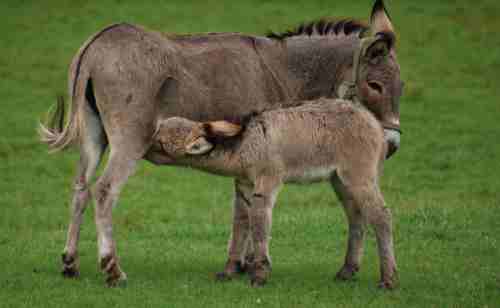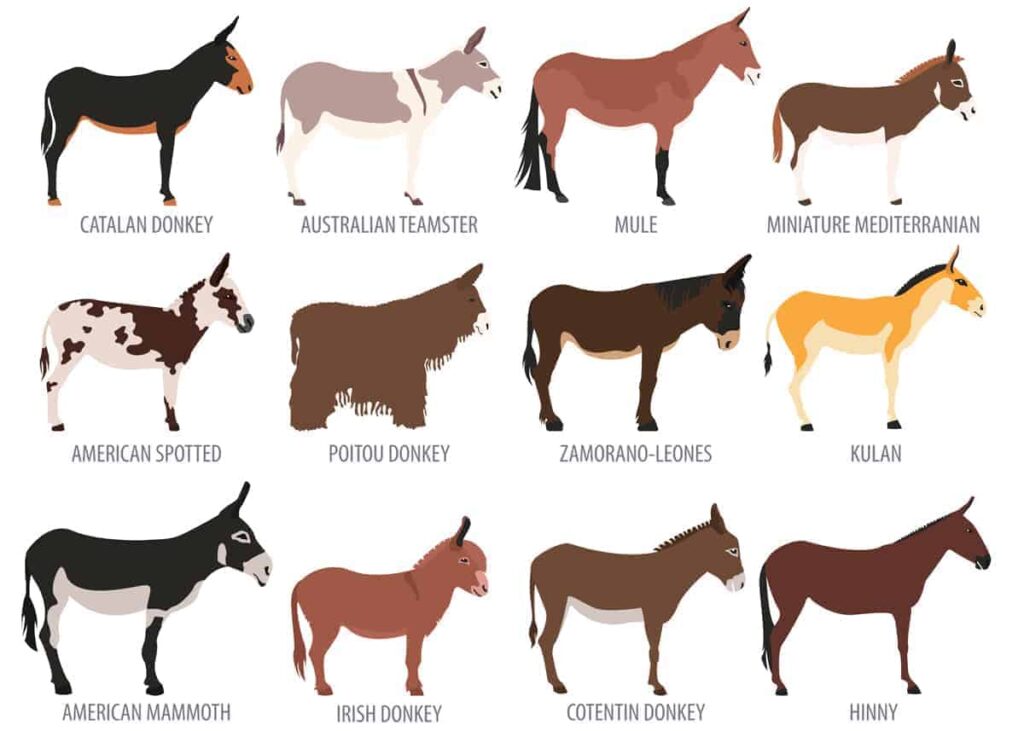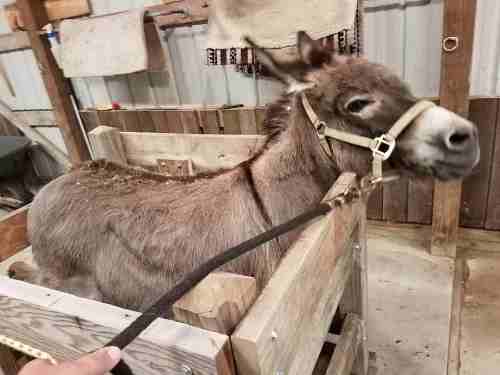This new choice could have left you wondering what the cost of a donkey? Before purchasing a donkey, you should think about all the costs involved in acquiring the new pet. From buying the animal to the costs associated with creating a comfortable environment and providing regular care, All of these aspects need to be considered before taking the plunge with the donkey.
As with equines, too, the costs of donkeys range from a few hundred dollars to several thousand dollars based upon the kind of donkey you’re looking for.
Like most horses that you purchase, the cost can vary widely, from nothing to thousands of dollars. The amount you will be paying will depend significantly on the features you’re looking to purchase.
Suppose you’re looking to have a pet, companion animal, or a pasture ornament. In that case, you might consider adopting the role of a “free to a suitable home” donkey or taking an animal from the slaughter pen in your nearby auction site. If you select the latter option, you’ll be charged the per-pound, going price for the donkey you pick.
Suppose you’re in search of a trained donkey that can show, trail ride, and work. You’ll pay an amount proportional to the amount of training that the animal has received, its size, breed gender, and a variety of other aspects.
Prices start at $300 for a donkey. Prices can reach $2,000 to 3,000 or even more.
How Much Do Baby Donkeys Cost?
It’s a given that you’d have paid fewer old donkeys. Jacks and Geldings that are less than six months are priced between $300-$600.

If you’re interested in having a registered breed, be prepared to pay for additional expenses. Female donkeys over six months old can be purchased for $700 up to $1900.
They are available at a lower cost if the donkey belongs to an unregistered breed or is saved.
What factors affect the price?
A donkey can cost just a couple of dollars or the equivalent of a large sum. Why is there such a wide variety? The reason is in the vast array of features animals may possess.
If you’re in search of an animal companion for your farm that doesn’t have “royal blood” and “extra features,” you might consider looking for rehoming or rescue donkeys. These animals will likely be available for adoption at no cost. This is a beautiful idea to take shelter for animals and take care of them. You could find a great companion and save money and save money!
However, if you’re looking for a perfect partner for showing or working you, then prepare to shell out. Additionally, mini donkeys are miniature ones available to keep as pets your children can play with. Donkeys with proven experience, top-quality breeding, and an exquisite build are priced reasonably. Prices start at $1500 and rise to $2,500.
Horses differ in their breed, purpose of riding as well as temperament, conformation and more. And their value varies accordingly. As well-trained horses can cost the earth, so it is for donkeys.
Remember that purchasing a donkey is only the beginning. After you have purchased an animal, it is essential to take care of your donkey companion like other farm members. The price tag is only a one-time purchase, and you should stand ready to pay for regular expenses. Let’s discuss all the information about essential costs.
What is the cost of owning the Mini Donkey cost?
After reading our previous article on adopting a miniature donkey, you’re contemplating purchasing your own. One issue that’s making you think twice is the possible cost of having a tiny donkey. What does the cost of the ownership of a miniature donkey cost?

A mini donkey could cost between $3,830 and $6,450. This covers the cost of adoption and the mini donkey’s accessories and equipment accessories, veterinary treatment, food, treats, and an enclosure.
Demand
The principles that govern supply and demand are applicable for every business, including an organization adopting miniature donkeys. If the company has only three donkeys, they may charge more than should they have ten donkeys available to adopt.
Essential equipment
The costs for the equipment listed below are estimates and can differ from one supplier to the next.
Electric fencing energizer: PS90 up to PS200
Plastic 90cm fence stakes (based on a square acre of land that has solid fencing around its perimeter) 15 posts if the field is square PS35
- Electronic fencing tape (200 meters roll) PS24
- Internal battery: PS12 for each
- Wheelbarrows for stables: PS50- PS200
- Fork: PS20
- Shovel: PS20
- Yard Broom PS10
- Poop scoop and Raked PS15
- Rope and headcollar and rope
- The grooming kit (dandy brush body brush plastic curry comb Hoof Pick, Tray/Basket sponges, cotton swabs, and scissors) PS25
- Buckets (minimum of two) PS10
Once You’ve Purchased Your Donkey, More Expenses Begin!
Remember that once you’ve found an animal you’d like to have, and you’re able to transport him from point A to B. This means that you’ll have to own an automobile and trailer of your own or to find a driver.
Donkeys are social animals. If you purchase one, you’ll require an additional one. You can buy an expensive, well-trained, and well-trained donkey to be your riding horse.
Start with Housing and Fencing
Before you even consider the donkey, you’ll want to make sure you have a suitable place for it to be kept. It is recommended that you have a robust and stable barn. If you reside in a region that isn’t too cold and isn’t prone to many inclement weather days, A three-sided shed is ideal.
Donkeys thrive when their diet consists mainly of hay and grass; therefore, you’ll need to have a good pasture and an attractive, robust, and secure fence. Make use of the horse fencing or ranch panels to build your wall.
Feeding Cost
Hay bales are usually priced between $5 and $10; in regions with a shortage of hay, owners may need to shell out as much as $25.
Rodeo and feed stores that are high-end sellers sell hay bales at a much higher price than local retailers. If you allow the donkey to roam on pasture, the cost is significantly reduced.
Adult donkeys can eat anywhere from 10 to 12 pounds daily and even more during winter to keep warm. Apart from hay, you’ll be required to provide additional supplements regularly to treat various deficiencies.
Shelter
The donkey needs an activity to keep him entertained and sleep. You can choose to rent an area or buy land for the donkey to stay.
There are many variables to consider when estimating this price. Estimate the cost of fencing, shelter, and the labor required to put it up.
A miniature donkey can reside in a backyard that is the standard dimensions. It is best to purchase the donkeys in pairs. In this case, you’ll need to create a place for them to reside.
Beware of barbed wire, as it is hazardous. Donkeys have a reputation for jumping electric fences.
Farrier Cost
Similar to the horses, Donkeys have to be trimmed every 3-4 weeks. If you use it as a work animal, you must cut their hooves regularly.
If the owner can do this job on his own, There is no need to pay any additional costs.
It is done by a professional If the work is done by a professional, the farrier’s bill can be between $40 and $80. In some regions, the cost can exceed 100 dollars.
Costs of care for the donkey per year

The veterinary costs listed are for annual check-ups and vaccinations. The cost of continuing care is estimated and based on a healthy donkey in good condition, having access to enough nutrition-rich grazing during the summer months, barley straw that is ad-lib, and sufficient hay or haylage in the winter. Be aware that medical treatment that a veterinarian prescribes may cost between hundreds and thousands of dollars. So, suitable veterinary insurance is something owners of donkeys should think about.
- Vet call-out and exam fees per visit from PS40-PS80
- Dental examination (At least once per year, but could occur more often) Between PS50 and PS70.
- Annual count of feces (Guardian owners can speak with an Adviser for Donkey Welfare about our laboratory services) 4 to 5 times each year: PS16 to PS40
- Worming (assuming three times per year, Based on 200 kg donkey) from PS12 to PS30
- Farrier (average eight-weekly trim): PS160 to PS260
- Insurance (third party responsibility only) from PS40-PS100
- Hay for donkeys that are off to graze in the winter (one bale per week, for 26 weeks) From PS104-PS182
- Straw used for bedding and feed (100 bales per donkey for the year) from PS400-PS600
- The cost for keeping donkeys can be as high as 1,600 dollars each year.
Budget to at least annually Vet Checks
Donkeys require all the medical attention horses need. Your veterinarian should visit every year for a comprehensive examination and give all the vaccinations necessary for your region.
Your veterinarianerinariahon can also take care of dental issues. The teeth of your donkeys should be brushed at least every two years to keep an excellent chewing surface.
Age affects the cost of Donkeys.
Animal lovers love babies. There’s nothing more adorable than the enormously long legs and ears of a newborn donkey. Also, the enormous eyes of trust for the baby animal are irresistible.
Additionally, if you purchase a foal, you will be able to perform the type of training you desire and do not have to worry about it coming with negative habits from a previous home.
Due to all of these factors, you might be paying more for donkey foals than an adult. On the other hand, on the other side in the range, you could expect to lower the cost of an adult donkey. There is a chance that you can find an older donkey that is well-trained or has other desirable characteristics.
General information
The number of times a year your donkey requires to be wormed and the type of drug is best used will depend on the owner’s land management plan, other animals that are kept, and the results of the count of feces. A consultation with your veterinarian is highly advised.
Senior donkeys, those suffering from dental issues donkeys who require more food or respiratory problems, might require unique bedding and feed that is usually more expensive.